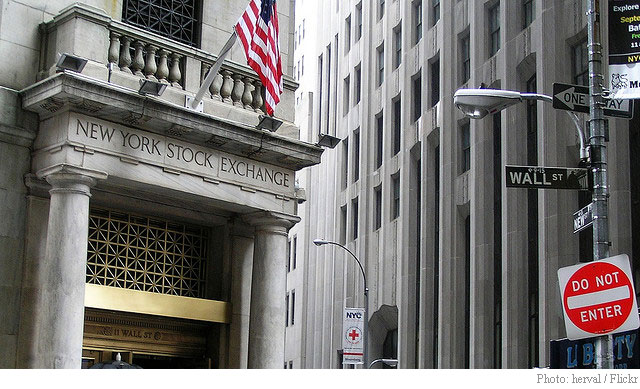Treating people fairly does not always mean treating them the same way.
If I trade in my car, I don’t expect to get the same price that a dealer will turn around and sell it for on his used car lot. If I buy a new car, I might try to get myself the best deal, but I am not likely to pay as low a price as a corporate fleet customer who orders 500 units at a time.
I don’t see this as unreasonable, and certainly not as unfair competition. I’m not in the same business as a car dealer or a fleet buyer. I only buy and sell cars occasionally, and all I expect is to be treated fairly in comparison to customers who are similar to me. If another customer buying one car for personal use paid much less to the same dealer, I would rightly feel ill-used; if the fleet buyer paid the same per-car price as I did, he would be the one who (rightly) found the situation unfair.
When it comes to the stock market, I am an investor, not a trader. If I buy a security, I expect to hold it for a considerable period in the hopes that the company whose shares I bought will prosper and that my shares will appreciate over time. I might hold my shares for years.
In contrast, a trader might hold those shares for days, or for hours or, in this era of high-speed computerized trades, for less than a second. The trader doesn’t care whether the company prospers or goes broke. He only wants to take advantage of either very short-term price movements or tiny price discrepancies between one trading venue and another.
Do I care if the trader gets a slightly better transaction price than me? Or if he receives market-moving news a couple of minutes before I do? Not at all, because I’m not hovering over my computer waiting for market-moving news to appear on my screen before I execute a trade. In fact, I appreciate the trader, because there’s a very good chance he’s on the other side of the transaction whenever I do want to buy or sell my shares – just as I appreciate the car dealer who takes my old car off my hands and delivers a shiny new vehicle, complete with an orientation that a fleet buyer doesn’t need.
Retail investors these days benefit from faster and cheaper execution of transactions than at any time since the New York Stock Exchange got out from under the buttonwood tree. But New York’s Attorney General, Eric Schneiderman, has threatened to pull the emergency brake. This might be helpful if there were an emergency; instead, he seems likely to just send everyone flying.
Schneiderman announced last week that he will take a deeper look at high-frequency trading, calling for reforms that would eliminate “unfair advantages.” Such advantages include technology designed to give high-frequency trading firms the fastest access to market-moving information, such as ultra-fast connection cables, extra bandwidth from exchanges and permission to locate computer servers within trading venues to decrease the distance information must travel.
High-frequency trading can see a significant advantage in milliseconds of early access, a difference that would be useless to retail investors. And while regulators have struggled with how to handle high-frequency trading in the past, studies also suggest that such trading increases market liquidity and makes prices more efficient in the market overall.
Schneiderman, however, has compared the services that provide the edge high-frequency traders seek to insider trading, calling them “one of the greatest threats to public confidence in the markets.” He also said his office would be investigating private trading venues, often called “dark pools,” which are less regulated than the exchanges.
His investigation is predicated on the New York’s aggressive Martin Act, about which I have written previously, and which Schneiderman has not hesitated to use before. It is also possible that the attorney general may be hoping to pressure exchanges to alter their practices without having to resort to enforcement action at all, though the exchanges may be more inclined to push back than are services like Business Wire, a press release distributor that said last month it would stop sending statements directly to trading firms.
Reuters reported that Schneiderman has suggested reforms, including that exchanges process orders in batches to mitigate the effect of millisecond-wide differences in reaction time. Manoj Narang, chief executive of Tradeworx, a New Jersey-based firm that operates a high-frequency trading business, told Reuters that such batch processing could be “extremely dysfunctional” to how the market works. Such concerns don’t seem likely to slow the attorney general.
Schneiderman is as misguided in his view of what constitutes fairness in the investing marketplace as he is shortsighted in further chilling New York’s business climate for what is arguably the state’s most important industry. If not pre-empted by Congress or short-circuited by the courts, Schneiderman just might succeed in driving brokerage and trading businesses out of New York and into the arms of jurisdictions that would welcome them with clear and reasonable regulatory environments.
In fact, an exchange or trading business threatened by Schneiderman’s current fishing expedition might reasonably leave the state and refuse to serve customers there at all, driving out even more business.
There are good reasons why exchanges need to be regulated and why fair standards for execution and information dissemination ought to be established and enforced. Schneiderman’s approach, however, is to decide he doesn’t like a business practice and then to look for a law that he can contend that it breaks. He can then extract both settlements and headlines at his convenience.
Treating people differently, especially if those people are doing different things, is not automatically a sign of wrongdoing. It isn’t even necessarily unfair. Until New York’s attorney general realizes this, those looking for fair treatment may need to look elsewhere.




Leave a Reply